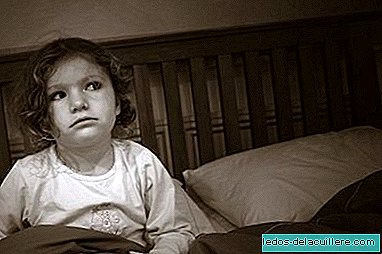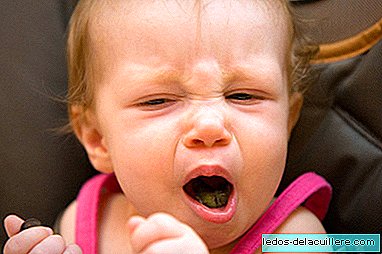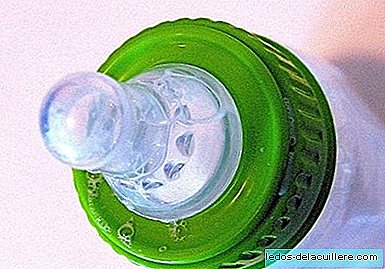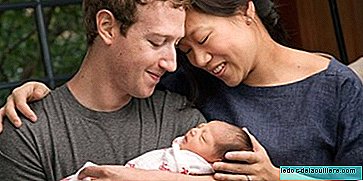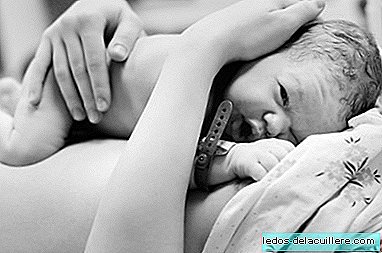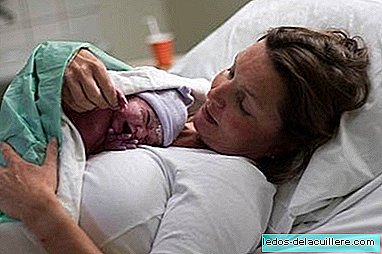
The Family Policy Institute has published this month, as it has been doing more or less every year, the so-called Family Evolution Report in Spain 2010, in which they offer really interesting data of the population in our country about birth, the evolution of marriages, population, households and family policies.
This last section is where you can verify that Spain is the European country that gives less help to families (It is really in the pre-last position of the 27 countries that make up the EU27, but with the withdrawal of 2,500 euros for all births and adoptions, it falls to the last place), a fact that makes people who want to start a family have to hustle alone doing the thousand and one to be able to raise their children in the best possible way.
For offering some data, say that while Europe allocates 2.2% of the P.I.B. (Gross Domestic Product), Spain dedicates a maximum of 1.2% of the P.I.B., which equates us to countries such as Poland or Malta.
Frozen aids
Not only do we receive few grants, but the few that remain remain “frozen” over time. Between 2000 and 2006 the CPI increased by 22% and it is estimated that the cost per child increased by 25%, however family benefits per dependent child (except that offered to children between 0 and 3 years old) and the payment of 100 euros for working women with children under three years old they are frozen since 2000 and 2003 respectively.
Goodbye to the 2,500 euros universal
This freeze was palliated, in a way, with the 2,500 euros that any family that had a child received. Now, when we are retired, we are in a really ridiculous situation if we compare ourselves with any other country in the European Union.
How much they give to other countries

To compare us a bit with the rest of the countries here I leave you with figures of the aid offered to families when they have a child in several of the countries of the European Union.
There are countries whose grants are universal (all families receive them, regardless of the income they receive) and others that limit them to a certain level of income.
Countries with universal aid:
Based on data from 2009, a couple who had their first child in Luxembourg would receive an aid of 216 euros per month, one who had it in Ireland 166 euros, in Germany 164 euros, in Austria 140 euros, in Denmark 133 euros, in Holland 80, in Cyprus 40 and in Malta 39.
Countries with conditional income support:
If in the same situation a couple had a child in Italy, they would receive an aid of 77 euros per month if their annual income did not exceed 68,749 euros per year.
In Portugal they would receive 23 euros per month as long as they had no annual income exceeding 27,249 euros.
In Slovenia they would receive 30 euros in case of not exceeding 17,575 euros per year and in Spain they would receive an aid of 27 euros per month as long as their income did not exceed 11,264 euros per year.
This limit, 11,264 euros per year, makes Only one in ten Spanish families receive this benefit, which makes us the country of the European Union that provides benefits to fewer families.
Families with only one worker pay more personal income tax
Concerned about the education of our children and trying to offer our children the upbringing that we believe they deserve and that, in fact, we want to give them, many parents have chosen to do without the work of one of the members.
If in this situation, a single worker obtained the salary of two workers (if the father, for example, had two jobs) would have to pay much more income tax than if they got the same money working both.
To give an example, if only one person works and gets twice the average salary (21,500 euros gross per year x 2 = 43,000 euros gross), they would have to pay an IRPF of 15.6% if they have a child. If instead they received the same amount of money between the father and the mother, they would pay 10.2% (5.4% less than the equivalent of 2,322 euros less income tax to pay in one year).
In other words, it seems that the state is more interested in the work of the father and the mother than not that one of them obtains the salary of both. This means that all the families in which the mother takes a leave to take care of her children, will pay more taxes than if she were working if the father seeks a second salary.
Ranked 25 of 27
All this (and probably a few more things), make Spain is ranked 25 in terms of aid and protection to families surpassing Portugal and Poland, however, in the report we can read "Just approve in the timely aid by birth, without which, it would occupy the last place ”.
Since within 7 months we run out of that help, I think we can clearly say that We are the country that least thinks about families.
What does it mean to receive so little help
Taking a look at the birth rates of the different countries, it is observed that those who receive more aid tend to have more children. I do not know what would happen in Spain if the aid to the families began to increase ... Would we have more children? Maybe yes. In my case no, because we are clear that either we stay with the two we have or we go for the third. It does not depend on money, we did not even know that we were the worst country to have children in a matter of aid, we are used to living with a tight belt and the aid would be good for us to go more relaxed, but not to have more children. Of course, I speak of my case, it is possible that there are families that would have more children if they received more benefits.


